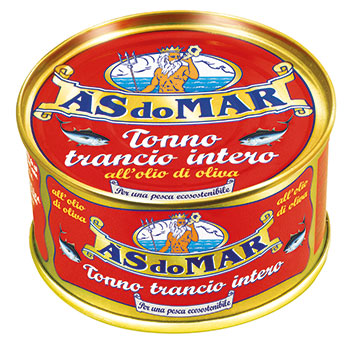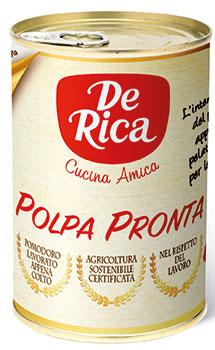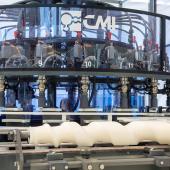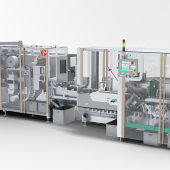Generale Conserve: metal packaging the safest
Tin or aluminium cans offer the consumer practical, longlife products, keeping the contents in time without the need for preservatives. The opinion of Generale Conserve (www.asdomar.it). By Anfima*
 Over the last decade Generale Conserve has successfully developed its own tunafish brand ASDOMAR, becoming an important quality landmark in the most global sense of the term for the Italian market. Recently the company bought two historic Italian brands, Manzotin and De Rica.
Over the last decade Generale Conserve has successfully developed its own tunafish brand ASDOMAR, becoming an important quality landmark in the most global sense of the term for the Italian market. Recently the company bought two historic Italian brands, Manzotin and De Rica.
Vito Gulli, President and CEO of the company explains their market approach featuring both product and service sustainability.
How do you perceive the concept of sustainability?
Our strategy and our policy feature both for total quality, hence true value for money, but also for another important aspect: our market approach in terms of sustainability. Sustainability is a word very much in fashion nowadays, that risks being misinterpreted and over-used; I though interpret it simply and directly. In order to help my company grow, today and in the future, I have to mainly concern myself with two things: the tunafish - or that is the fundamental raw material for my business - and the consumer, with his/her purchasing power.
In this sense, how important is the choice of packaging for your products?
Our general approach to sustainability has to include the packaging in which our products are packed. Indeed, the packaging is the element that underlines our action. Tin and aluminium cans are, and I wish to underline it, among the safest containers we can offer the consumer. And this for many reasons, that derive from their capacity to preserve their contents in time, up to guaranteeing the safety that the thermal sterilisation process confers to the product. Canned products in fact do not contain preservatives or other substances, are natural and can be consumed over a period of time.
I don’t want to emphasize the recyclable characteristics of cans, because I hope everybody is well aware of these and, what is more, they are clearly displayed on the tins themselves, but I want to aboveall underline the safety that metal packaging ensures.
What are the values of the steel and aluminium containers for food products appreciated most by the consumer?
I think that aboveall the consumer perceives their practicality, their easy preservability, their being easy to open. But I don’t think he or she is fully aware of how safe the can is for preserving the product, hence the very antitheses of a distorted perception - unfortunately widespread – of those who at times “turn up their noses” to canned products: canned products are the safest. In a nutshell, your products can hence be seen as a model guaranteeing safety, quality and sustainability.
Certainly so. Sustainability, ethics and safety are three aspects of one whole. Our approach to these values has enabled us to obtain a result of which we are extremely proud, that is of having been the first concern in the sector to have drawn up, already last year, the first sustainability balance: a balance that follows the guidelines of an international standard and with the avowal of a third company, hence a further important certification, not merely the acknowledgement of a best practice.
Metal packaging: the most recycled in Europe
Metal packaging is the most recycled packaging in Europe. In Italy in 2013 73.6% of the steel packaging placed on the market for consumption was recycled, for a total of 320,231 tons; likewise 70.3% of aluminium packaging placed on the market was recycled, to a total of 47,500 tons. Steel and aluminium are permanently available resources: easily segregatable, they can be recycled to infinity without losing their intrinsic qualities.
The advantages for the environment also derive from the constant investments in research and innovation: over these last year, thanks to technological intervention along the entire supply chain, a decisive program of reduction in weight of the single metal container has been registered. Thanks to this progress and the improvements in recycling rates, over the last decade the environmental impact of steel food containers has been reduced by an average of 30% (Empac - European Metal Packaging - study on the environmental performance of the 425 ml three piece tin can for food use). www.empac.eu/it
* ANFIMA
(www.anfima.it) is the Confindustria member association representing the Italian metal packaging producers.

















